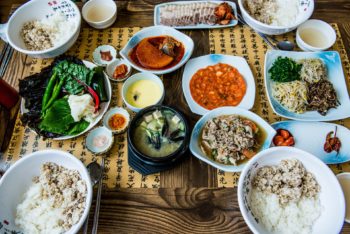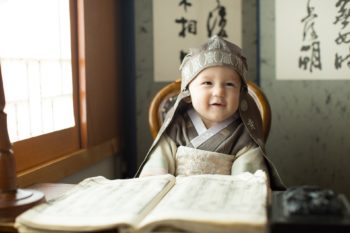Old and New Culture in Modern Korean Society (Part 3) Posted by Flying Oyster on Jan 26, 2022 in Culture, Food, Idioms, Korean Language, Pronunciation, Vocabulary
In 2021, I talked about some aspects of Korean culture. Some of them are slowly disappearing, but others surprisingly still exist. If you haven’t read them yet, I recommend that you read these in order to understand how fast Korean cultures are changing.
(https://blogs.transparent.com/korean/old-and-new-cultures-in-modern-korean-society-part-1/)
(https://blogs.transparent.com/korean/old-and-new-cultures-in-modern-korean-society-part-2/)
Today, I would like to talk about 양육 (yang-yook: raising/nurturing children) in Korea.
- 산후 조리 문화 (sahn-hoo-joh-ri-moon-hwa: the culture of post-natal care)
There is a special post-natal care culture in Korea. After delivering a baby, most Korean women go through the periods of time called, 산후 조리 (san-hoo-joh-ri: post-natal or postpartum care). This time is considered to be crucial for women’s health in the long term because Koreans believe that women’s bodies, particularly 골반 (gol-bahn: the pelvis) and other bones, need time to realign and heal from child delivery.
During this time, Korean women are strongly recommended to avoid house chores or heavy physical labor. In old times, bed rest was strongly recommended during the 삼칠일 (sahm-chil-il: three weeks) after 출산, but today’s doctors have been recommending a light level of physical activities, such as walking.
Good nutrition and rest in a warm environment are strongly recommended at this time. There are many different kinds of nutritious foods for new moms. 미역국 (mi-yeok-gook: a seaweed soup) is one of the most typical 산후 조리 food.
Traditional Korean medicine has been teaching Korean women to avoid drinking cold water or cold food after 출산 (chool-sahn: childbirth) because it is believed that teeth and bones are susceptible to being sensitive to cold after childbirth. Therefore, 산모 (sahn-mo: a woman after childbirth) is recommended to rest in a warm environment. While they rest, 친정 엄마 (chin-jeong-um-ma: a mother who raises a person) or 시어머니 (si-uh-muh-ni: a mother in law) will usually assist a new mother and take care of a baby.
In modern times in Korea, there are many care facilities for 산모 because not everyone could get help from their family members nowadays. In a care facility, medical doctors and other certified experts are present and facilitate the wellness of 산모 during 산후 조리. 산모 gets comprehensive care from getting a quality diet, weight management service, or other health issues after postpartum to even receiving baby care classes, etc.
2. 학원문화
Babies grow fast and they eventually get into a school system. As former president Obama mentioned many times, 학구열 (hak-goo-yeol: education fever, ardor for study) is very high in Korea. Many Korean parents strive to provide the best quality learning environment for their children financially and emotionally. As Korean society has been becoming more diverse and embracing a variety of cultures, the power of an elitism or 명문대 (myeong-moon-dae: privileged college) 지향주의 (jhyang-joo-eui: to the pursuit, an aspiration) is diminishing. However, they still exist in Korean culture.
학원 문화 (hak-won-moon-hwa: the culture of a private educational institute) is pervasive in the Korean society. 학원 (haw-won: a private educational institute) is an institute where Korean students perform afterschool activities such as art, music, physical education. However, it is common to study particular subjects such as 국영수 (gook-young-soo: a term for a subject of Korean, English and math). In general, these subjects are the important criteria to be admitted to higher-ranked universities. It is not uncommon for Korean kids to daily spend extra hours in a couple of different 학원 after school. Raising children in Korea could be more expensive compared to other countries due to 사교육비 (sah-gyeo-yook-bi: expenditure of private education).
What did you think about these aspects of Korean culture? Were you aware that Korean women get special treatment after childbirth? I have always thought that Korean 산후 조리 culture is unique from the other western cultures.
It often fascinates me how quickly Korean culture is evolving. Things I used to know about Korea might not be as accurate as I believe. In the future, I am planning to post one more entry about Korean culture. Stay tuned!

Build vocabulary, practice pronunciation, and more with Transparent Language Online. Available anytime, anywhere, on any device.







